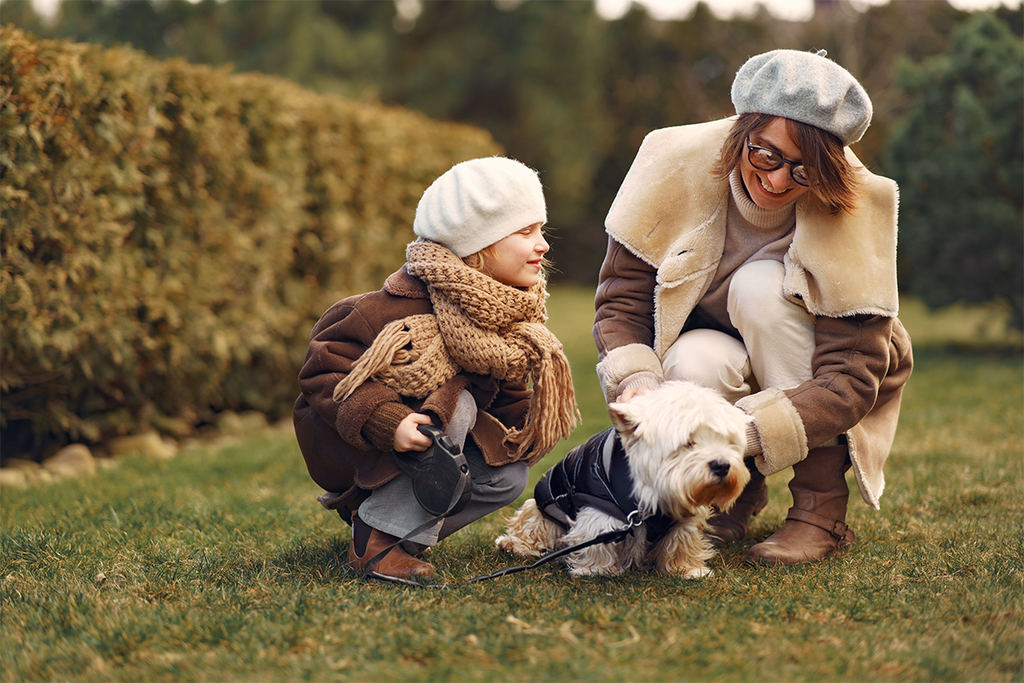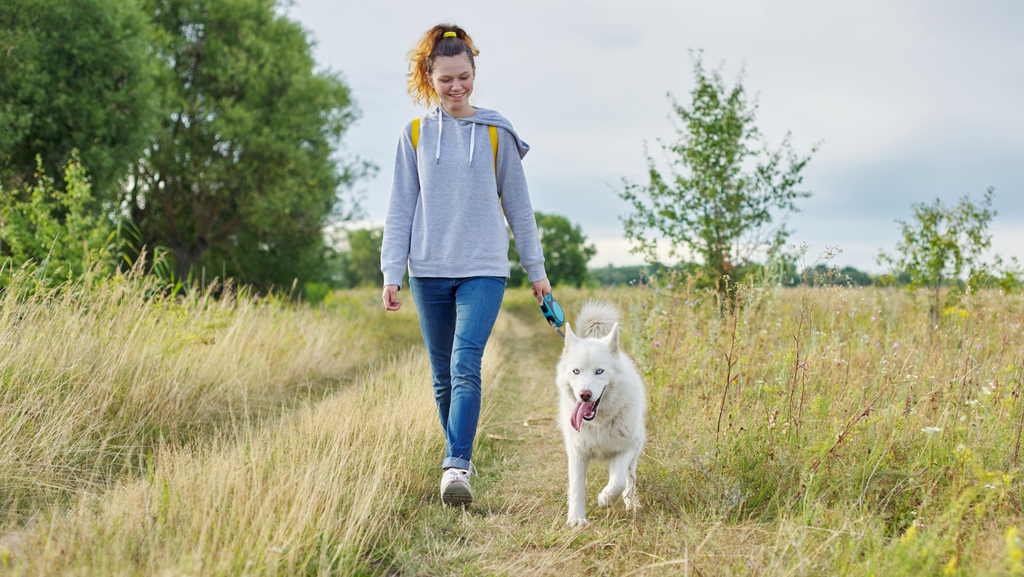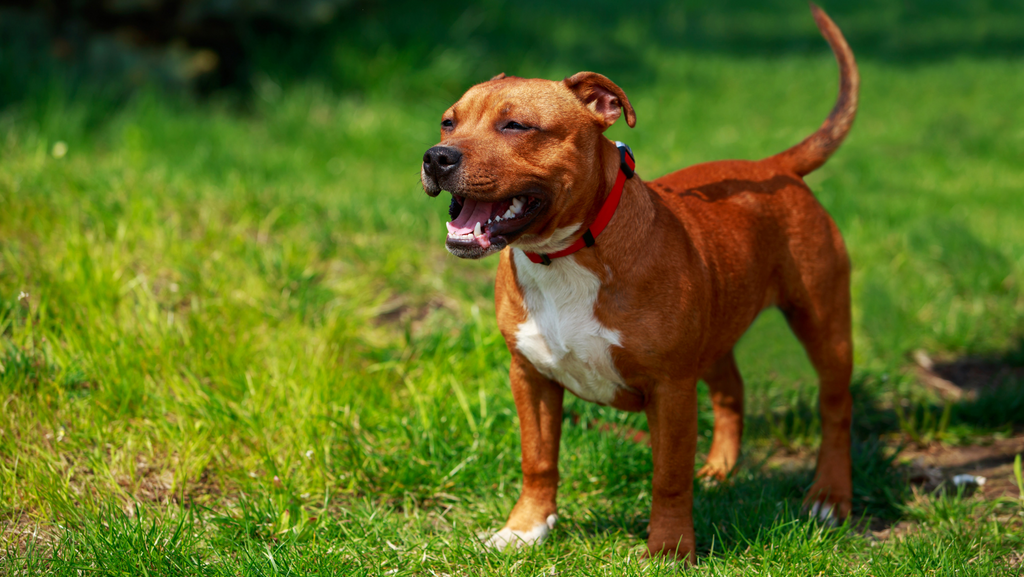What is the Best Senior Dog Food?

When you look into your dog’s eyes, there’s a great chance you still see the sweet puppy or dog you brought home years ago. While deep inside, your dog is the same sweet canine companion you love so much, your dog’s dietary needs have changed. So what is the best senior dog food? This article will go over how to keep your older dog healthy with a nutritious diet, that is tailored to an elderly dog’s needs.
When Should Your Dog Switch to a Senior Diet?
Not all dogs age at the same rate. Furthermore, the “one human year equals seven dog-years” formula is not an accurate way to determine when your dog is “old.” When determining when to alter your dog’s diet, you will want to look for signs of aging and consider their size or breed-mix.
Some of the most apparent signs that your dog is over the hill include:
- Greying around the muzzle
- Slowing down in movement and response
- Sleeping more
- Gaining weight
- Having trouble seeing or hearing
To determine your dog’s age, keep in mind that smaller breeds age slower. Giant and larger breeds tend to age more quickly, though. It’s safe to say once your dog reaches six as a larger breed, you will want to consider your dog a senior canine citizen. If you have a smaller breed, your dog will benefit from a change in diet around the age of ten.
What is the Best Diet for a Senior Dog?
The best diet for your dog meets their unique needs and helps them stay active, maintain a healthy weight, and feel their best. This is all about balancing calories, flavour, carbohydrates, minerals, vitamins, and fibre.
Protein
Protein is the most important factor in your dog’s food. Senior dogs need more real-animal protein. Why? Protein protects muscle mass. Once this muscle begins to dwindle, a dog’s immune system will also begin to struggle. A high-protein raw dog diet also regulates metabolism and helps the body heal. Additionally, amino acids found in meat help the body burn fat, helping your dog ditch excess weight.
When choosing the right food for your older pup--do not skimp on the protein quality or amount.
Beware that many foods will try to boost protein levels with non-meat proteins. These are low quality protein and not processed by your dog’s body the same way real animal proteins are, rendering them useless. In other words: if it doesn’t come from an animal source, it doesn’t count towards your dog’s protein intake.
When all is said and done, you want a food with a high percentage of real animal protein. Higher quality proteins like lamb, duck, chicken, kangaroo, goat, and bison can support a dog’s body and prevent food intolerances.
Calories & Fat
When it comes to calories, senior dogs’ energy needs decrease by 25%. This means you can lower your dog’s caloric intake to about 75% to 80% of the calories they consumed as younger dogs.
Along with fewer calories, old dogs also require less fat.
Once dogs hit their late senior years, though, they will begin to drop weight. At this point, your dog will actually need more calories and a nutrient-dense diet.
Texture
Furthermore, many senior dogs struggle with dental issues which can make chewing difficult and painful. Softening your dog’s food with water can make kibble easier to chew.
Minerals & Vitamins
For the most part, old dogs benefit from less salt. Yet your dog’s diet isn’t just about cutting back. Elderly dogs benefit greatly from the supplement support of glucosamine and chondroitin, L-carnitine, and collagen. Old dogs also benefit from vitamins C and E, which can be found in a lot of fruits and veggies.
Water
One of the often-overlooked deficiencies in an older dog’s diet is water. Old dogs frequently have a great need to stay hydrated. Adding water to your dogs dry food is a great way to easily increase water intake. You can also add a few extra water bowls around the house to encourage more drinking.
Should My Older Dog Eat a Big-Box Senior Food?

Probably not. Depending on your dog’s age and health, mass-produced, generic dog food is likely not the best choice for your dog, especially since studies suggest that supermarket dog food often lacks in quality. Instead of relying on generic supermarket kibble, consider switching to a dry natural dog food made with real, whole ingredients and tailored to support the unique nutritional needs of aging dogs.
If you read the ingredient list of a “senior dog food” from one of the major brands, you will notice that the biggest difference between that food and a multi-age food is it has fewer calories and not higher-quality proteins. There is no legal standard that the food needs to meet other than the AAFCO guidelines. So just because it’s labelled as a “senior diet,” doesn’t mean a dog food is the best choice for your old dog.
A better choice is a high-quality diet with fewer ingredients, and most importantly at least 25% protein--if not more. Always choose a dog food that offers an analysis of nutrient levels.
You can also supplement your dog’s diet with more fresh fruit and vegetables.
What are some safe and tasty fruit and veggie options for your dog?
- Apples
- Blueberries--a great source of antioxidants
- Blackberries--a great source of antioxidants
- Raspberries--a great source of antioxidants
- Green Beans
- Carrots
- Cranberries
- Spinach
- Sweet Potato
Coconut oil and fish oil also aid in cognitive function, digestion, and skin health.
Common Issues Senior Dogs Face When It Comes to Diet
Senior dogs tend to experience some common health problems that need to be accounted for when choosing their dog food.
The most common problem senior pups experience is excess weight--this is caused by a slowing of metabolism and slowing down physically. While a chubby dog can be adorable, carrying extra weight can do a number on your dog’s joints, skeletal system, and mood. This is why overweight dogs age faster than dogs within a healthy weight range.
Other dogs struggle with kidney issues, heart problems, and diabetes. These all require unique diets, and we will go over some recommendations for these issues.
There is also the issue that once a dog reaches their late senior years, they begin to drop weight, so many dog owners find they have to switch course and begin to increase calories. This can be tricky because many old dogs tend to lose their appetites. Hint: food that smells appetizing and tastes great makes a huge difference!
What Should You Feed an Old Dog with a Specific Health Issue?
If your dog develops a health issue, it’s easy to adjust their diet to help their body stay strong. Here are some straightforward adjustments that can improve your dog’s health:
- Diabetes: Low-fat and higher fiber
- Constipation: Higher fiber from natural sources
- Heart Issues: Low sodium
- Skin Issues: High Omega-fatty acids
- Kidney Issues: Low phosphorus
- Cognitive Dysfunction: Increase antioxidants
- Joint Issues: Chondroitin and glucosamine
-
Digestive Issues: Add medium chain triglycerides like those found in coconut oil
Deciding on the Best Diet to Feed Your Old Dog
When it comes to the best diet for a senior dog, there is no one-size-fits-all. Yet when your dog passes middle-age, you can feel confident that a well-rounded, nutritious diet with quality ingredients will support a healthy body, mind, and spirit.
We proudly offer dog foods that exceed AAFCO standards that taste great! With high-quality animal proteins, fresh fruits and vegetables, along with all the vitamins and minerals senior dogs need, our food ensures your dog will feel their best and live life to its fullest. Check out Petzyo's dry food and biologically appropriate raw food now.




